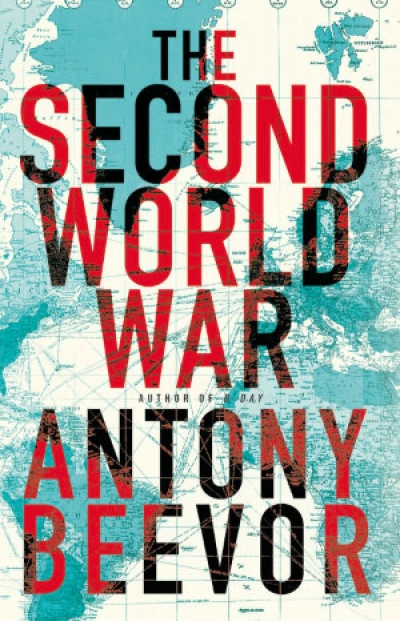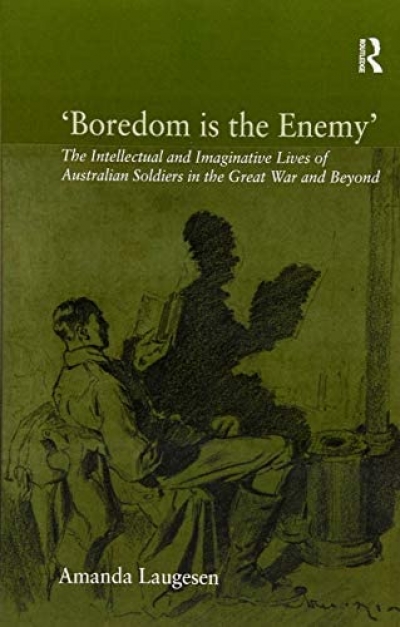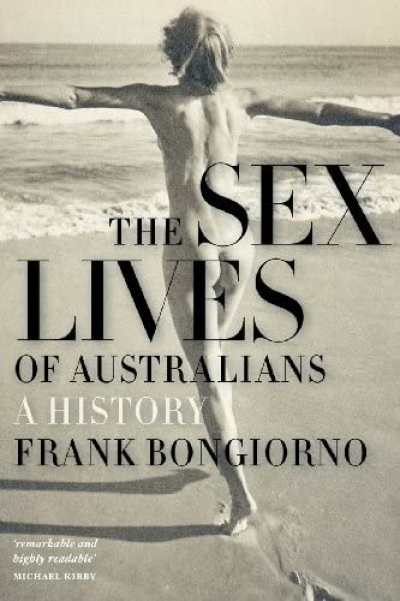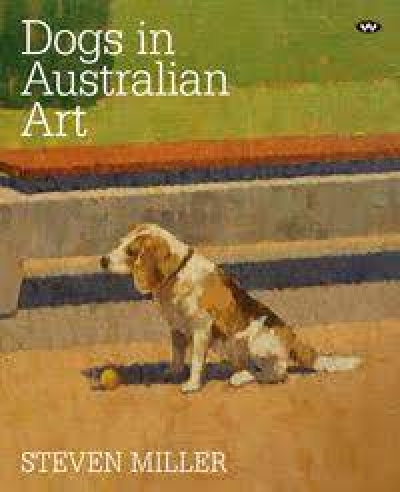History
The Years of Lyndon Johnson: The Passage of Power by Robert A. Caro
In Australia today, Lyndon Baines Johnson (1908–73) seems a fleeting figure on history’s stage: a brief interlude between Kennedy’s Camelot and Nixon’s Watergate – ‘All the way with LBJ!’ – the retreat from quagmire Vietnam – and that’s about it. So how does one justify buying and reading Robert A. Caro’s seven hundred-page book (dubbed ‘bloated’ by one critic), the fourth in a five-volume biography?
... (read more)Vanished Kingdoms: The History of Half-Forgotten Europe by Norman Davies
Norman Davies illustrates the literary life available to a score or so of living historians whose works at one time or another made the bestseller lists. Like Simon Schama, Niall Ferguson, and Paul Kennedy, he occupies a place in a Valhalla where the normal rules don’t apply. Instead of waiting nervously for publishers to give thumbs up to a cherished manuscript, agents offer large advances, wide publicity, and – best of all – a huge canvas on which to paint. Of course, the great gulf that separates such stars from hungry hacks yawns in many fields. Novelists like Toni Morrison or Julian Barnes, artists like Anselm Kiefer or Damien Hirst, architects like Zaha Hadid or Frank Gehry enjoy similar advantages. Among the most striking privileges for historians in the pantheon is exemption from the usual 100,000-word limit. Davies can use as many pages as he pleases. The result is Vanished Kingdoms, which, at 847 pages, stands about as tall as a stack of five ordinary monographs. Apart from making it an unlikely book at bedtime, the question arises as to whether it is five times as good. Or has Davies drifted lazily into the category of ‘overweight or obese’?
... (read more)Too often histories of World War II either have ‘total’ in their title or make great play with total war as a concept. Essentially this is meaningless, because all that is meant by total war is big war. Antony Beevor mercifully does not call World War II ‘total’ or make any reference to total war.
... (read more)Boredom is the Enemy: The Intellectual and Imaginative Lives of Australian Soldiers in the Great War and Beyond by Amanda Laugesen
W hat book would you want to read in hell, or in one of humanity’s remarkably competent imitations of it? Tristram Shandy seemed about right to one young Yorkshireman who reached the Western Front in 1915. A year later he found an anthology for soldiers edited by Robert Bridges, the poet laureate, but it seemed so lofty in purpose, so earnest in its morality, and so abstract in its idealism that it simply wilted in the mud and blood. When World War II began, the Yorkshireman, now famous as the poet and art critic Herbert Read, assembled his own sturdier anthology, The Knapsack (1944), mixing Spinoza with Edward Lear. Read’s little volume seemed perfectly pitched to William Loh, a Western Australian soldier in New Guinea in 1943, where ‘hardship and boredom walked hand in hand’, films and concert tours rarely reached the front line, and newspapers and precious letters from home arrived far too late, or so Loh complained. He suggested getting an Australian version of Read’s book to the troops. Just give it a different title, he advised: ‘Knapsacks are too bulky up here.’
... (read more)Bold Palates: Australia’s Gastronomic Heritage by Barbara Santich
That Barbara Santich has a vast knowledge and understanding of her subject is evident in every vivid and informative page of Bold Palates. The writer sets out to prove that, from the earliest colonial days, Australians improvised and adapted the available food, be it local or imported, familiar or new, and in so doing created the foundation for the distinctive Australian food culture we know today. A huge amount of research has been undertaken in the compilation of this book. It was clearly a productive and joyful task.
... (read more)All Our Relations: 18th Biennale of Sydney 2012 by Catherine de Zegher and Gerald McMaster
The eighteenth Biennale of Sydney was premised on the establishment of a new paradigm of conversation and collaboration between the two curators, participating artists, and the exhibition audience. Reacting against perceived disconnections between people and cultures in a modern era of individualism, the exhibition and accompanying catalogue proposed a new model for relating to one another and to the world we share, a model based on empathy and togetherness. Appropriately then, much of the work in the exhibition was aesthetically beautiful, particularly the installations at the Art Gallery of New South Wales. Gao Rong’s lifelike recreation in fabric of her grandparents’ modest home in northern China set the craft-oriented tone of the exhibition, each humble domestic item painstakingly embroidered by the artist. This poignant labour of love was not simply a novelty designed to catch viewers off guard (which it did), but a thought-provoking re-casting of the ordinary as extraordinary.
... (read more)The Sex Lives of Australians: A History by Frank Bongiorno
In 1984 Carole Vance edited an important book on female sexuality entitled Pleasure and Danger.Those terms could well have provided a subtitle for Frank Bongiorno’s thorough and engaging history of sex in Australia. ‘Sexuality,’ wrote Vance, ‘is simultaneously a domain of restriction, repression and danger, as well as a domain of exploration, pleasure and agency.’ To which she might have added a domain of increasing surveillance, another theme that runs through Bongiorno’s book. From fears of unwanted pregnancy and the dangers of botched abortion, to herpes and HIV, sex has always carried threats to health and safety. At the same time, it is an arena of pleasure, even though much religious and ideological pressure has been applied to restrict and constrain the possibilities that people might find in full expression of their sexual potential. Even in the comparatively liberated 1920s: ‘Public debate about sex in Australia stressed dangers and pitfalls and gave less attention to sex as a source of pleasure.’
... (read more)Fighting to the Finish: The Australian Army and the Vietnam War 1968–1975 by Ashley Ekins, with Ian McNeill
Fighting to the Finish does not get off to a good start; its title is overstated. The First Australian Task Force (1ATF), trimmed down in 1970 from three to two battalions, withdrew from the Vietnam War by December 1971. The small remaining advisory group withdrew in December 1972. Fighting finished in April 1975, when more than 180 battalions of the People’s Army of Vietnam (PAVN) swarmed around Saigon, causing it to fall. It hardly seems sensible to declare that the Australian Army fought to the finish over two years before the end of the war.
... (read more)Australian Art and Artists in London, 1950–1965: An Antipodean Summer by Simon Pierse
For a brief period, Australian art enjoyed unprecedented popularity in London, which became home to a large expatriate community of artists such as Sidney Nolan, Arthur and David Boyd, Charles Blackman, and Brett Whiteley. This ‘Antipodean Summer’ is vividly portrayed in Pierse’s critical account. He reveals that the success of these artists depended upon the support of a handful of art patrons, notably that of the art historian Kenneth Clark, the flamboyant young director of the Whitechapel Art Gallery Bryan Robertson, and the Australian expatriate art dealer Alannah Coleman. Nolan’s solo exhibition at the Redfern Gallery, Robertson’s ground-breaking Recent Australian Painting (1961), and Coleman’s Australian Painting and Sculpture in Europe Today (1963) were also crucial to the success of Australian artists. These exhibitions provided a counterpoint to the much-critiqued Tate Gallery survey exhibition, AustralianPainting: Colonial, Impressionist, Contemporary (1962–63).
... (read more)Dogs in Australian Art: A New History in Antipodean Creativity by Steven Miller
‘As cats are often associated with bookshops, dogs are similarly attracted to art galleries’, according to Steven Miller, head of the research library and archive of the Art Gallery of New South Wales, and author of Dogs in Australian Art: A New History in Antipodean Creativity. The beagle on the cover sits attentively, head slightly cocked, as if contemplating art. It is not until you turn the book over that you see what the dog is really looking at. David Welch’s wry painting sets the tone for this quirky and intriguing book.
... (read more)








